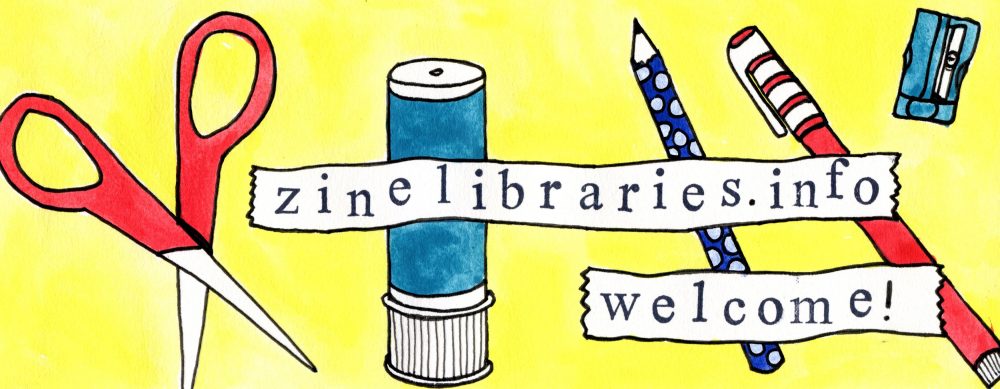Facilitator: Poliana
Notes: Honor
!st subtopic Disarming student zine assignments sub topic
Example of what not to do:
During youth workshop, student reported that zines made for class had zine stapled to bulletin board
Something that should be awesome and fun is made into a chore
Sometimes instructors will force aesthetic preferences onto student zine makers
How can we grade something that’s profoundly personal–separating out grading rubrics from content
Alternatively, encourage incorporating zine assignments that involve non-fiction; not requiring zines to be personal or artistic in content
Washington State has done some history zines
POC zine project has partnered with after school projects/school classes, encouraging developing praxis for using zines to teach any subject; POCZP Zexplicitly won’t work with classes that grade zines, rather those that emphasize writing and critical inquiry; specific example given of assignment that required students to speak to their personal experiences and then be graded
Separating out mechanical part of zine creation from content in zine making classes; learning how to make a zine in a non judgemental way
Sounds like some teachers may be incorporating zine making assignments without knowing that much about zines or zine making
In art school, assignments have included interviewing folks in a neighborhood and making a zine about that; had clear rubric for grading; student workshop where students were given option of taking zine with them or leaving it; clearly articulating where zine goes when class is done
Q: do workshops make photocopies for students to trade?
A: Not necessarily;
Not so much that no zines should ever be graded, but consent and expectation need to be foregrounded
Perhaps a zine assignment code ethics; when facilitating an assignment, being able to say maybe this is problematic;
some stuff for responsible zine teaching already out there
QZAP interns required to make zines, 2 assignments, 1st: 2 week mini zine project, if never made a zine before: make a zine that teaches someone how to do something. 2nd larger zine assignment has broader parameters (suggest length, preferred creation metadata elements)
One rubric development possibility is working with students to develop the grading rubric, so that the rubric itself is collaborative
POC ZP internship approach is that it encourages community engagement, to avoid insular focus of many zine making projects, especially in academic settings; by looking outward they can think about the use of zines for information sharing and broader contextual meaning; too much looking inward can be problematic for folks who are already feeling isolated;
Acquiring and showcasing:
MICA sometimes get results of class assignments; sometimes displays them in small exhibits; zines
South Bay Zine library started by taking two sandwich boards with zines displayed on twine, then it becomes portable zine library and exhibit; later partnered with LGBTQ youth space, collection now has permanent home, but still uses display as portable browsing library.
What are the goals of collecting student created zines?
SBZ a mix of older zines and new zines, important for younger folks to see zines that are made by their contemporaries, and speak to their experiences
Students like to see what other students are doing, also it’s DIY representations, captures student voices; work done by students often only for an audience of one, this is a way that student work can reach a broader audience; lets students know that their voices are valid; in a library setting, catalog representation can be affirming, there zine can be equivalent to a harry potter book
Affirming for career and educational goals, demonstrates mechanisms for content distribution; also captures primary source materials for understanding political contexts and social movements
Students can also be involved in selecting zines for the collection, gives them a voice in library collections;
we should pay people for their zines! (If we can, sometimes we don’t have budgets.)
difference between gift of personal collections and zinesters giving individual zines
POCZP exists both in concert with and outside of academic spaces, they’ve developed a funding model where different academic departments can combine funding, and then furthers interdisciplinary community building within partner institutions
More support for educators about preparing and planning to bring in outside facilitators
One more reason to collect student zines: good way for students to see their own growth and development over time
Students and alumni really appreciate seeing there stuff in the library and that they can be part of it.
Zine con in San Jose was able to get funding so that tablers wouldn’t have to pay; then had successful donation a scheme
hooking folks up with printing can be a great way to encourage donations
